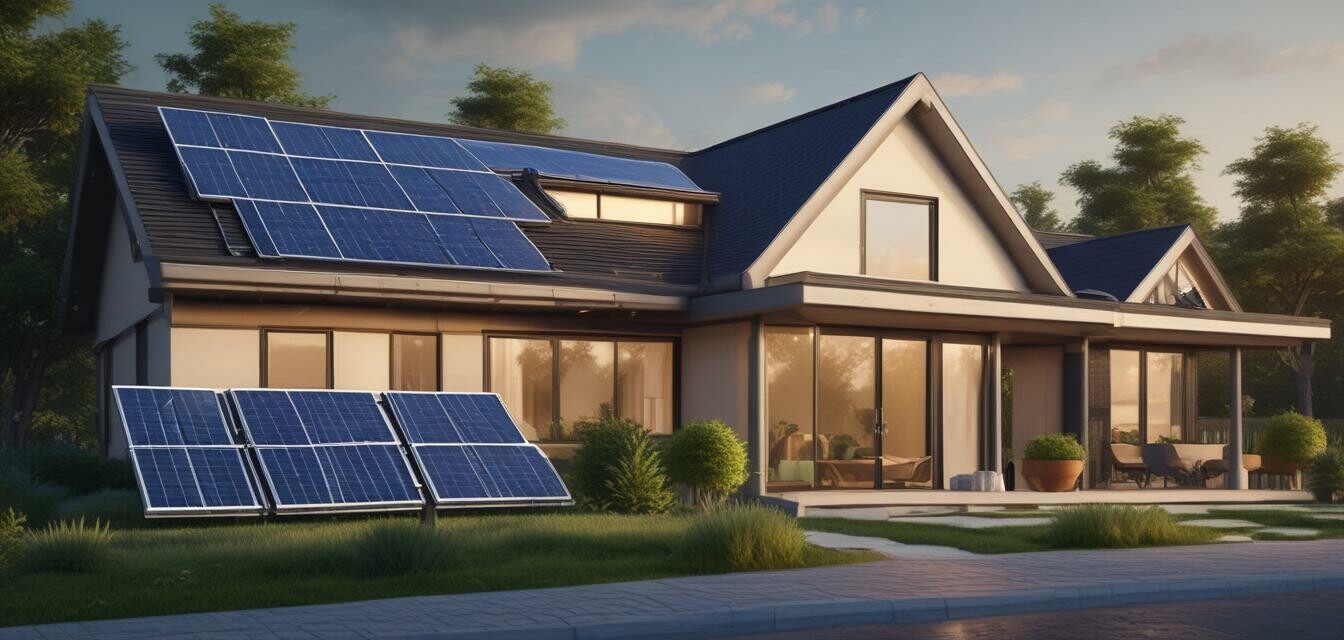
Smart Home Tech and its Role in Sustainable Living
Key Takeaways
- Smart home technologies enhance energy efficiency, reducing overall consumption.
- Automated systems can help in managing resources more effectively.
- Smart solutions contribute to reducing waste with better tracking of usage.
- Investing in smart tech can lead to long-term cost savings.
- Integration of smart technologies promotes a sustainable lifestyle and environmental responsibility.
As our understanding of sustainability deepens, finding innovative ways to incorporate it into our daily lives becomes essential. Smart home technology plays a crucial role in facilitating a greener lifestyle. From energy-efficient appliances to automated climate control, smart solutions can significantly reduce a household's carbon footprint. In this article, we will explore various smart home technologies that contribute to sustainable living.
Sustainable energy management
One of the primary advantages of smart home technology is its ability to optimize energy consumption. This is achieved through innovative devices and systems that give homeowners unprecedented control over their energy usage.
Smart Thermostats
Smart thermostats learn your habits and adjust your heating and cooling systems accordingly. They can be controlled remotely, allowing you to manage your home’s temperature even when you're away, thus conserving energy.
| Feature | Benefits |
|---|---|
| Remote Control | Adjust temperatures from anywhere, saving energy when not home. |
| Learning Capability | Adapts to your schedule to optimize energy use. |
| Energy Reports | Understand and monitor your energy usage patterns to make adjustments. |
Smart lighting solutions
Lighting can often account for a significant portion of your home’s energy consumption. Smart lighting systems can help lower these costs effectively.
Benefits of Smart Lighting
- Automated Scheduling: Set up a schedule to turn lights on and off when needed.
- Motion Sensors: Lights can automatically turn off in empty rooms.
- Energy-Efficient Bulbs: Use LED bulbs that use significantly less electricity.
Water conservation through smart technologies
Water is an essential resource, and conserving it is critical. Various smart technologies can assist homeowners in monitoring their water usage.
Smart Irrigation Systems
These systems optimize watering schedules based on weather conditions, ensuring plants receive the right amount of water without wastage.
| Feature | Benefits |
|---|---|
| Sensors | Detect soil moisture levels to adjust watering accordingly. |
| Weather Integration | Adjust irrigation schedules based on real-time weather data. |
| Remote Monitoring | Manage your irrigation system from anywhere using a smartphone app. |
Waste reduction and recycling
Smart technologies can help track food usage and manage waste more efficiently, contributing to a reduced environmental impact.
Smart Appliances
Smart refrigerators can track expiration dates and quantities, prompting users to plan meals and reduce food waste.
- Smart Ovens: Tech can help inform you about energy consumption and cooking times.
- Smart Trash Cans: Some are equipped with sensors that remind you to recycle and compost.
Long-term Cost Savings
Investing in smart home technologies is not just an eco-friendly choice; it also leads to significant financial savings over time.
Return on Investment (ROI)
By using less energy and water, homeowners can see substantial reductions in utility bills. Here's a brief overview of potential cost savings from various smart technologies:
| Smart Technology | Annual Savings Estimate |
|---|---|
| Smart Thermostat | $180 |
| Smart Lighting | $120 |
| Smart Irrigation System | $300 |
Embracing a sustainable lifestyle
Implementing smart technologies in your home is not just about convenience; it’s about taking responsibility for our environmental footprint. By leveraging these technologies, we can make significant strides toward living sustainably.
How to get started?
If you’re considering integrating smart technology into your home, start with:
- Identifying your home’s energy and water usage patterns.
- Researching available smart home products that fit your needs.
- Setting realistic goals for reducing energy and water consumption.
- Gradually implementing devices to allow for easy adaptation.
- Monitoring results and adjusting your strategies as needed.
Tips for beginners
- Start with a budget to manage your expenses effectively.
- Choose devices that are compatible with your existing home systems.
- Focus on devices that offer energy tracking features.
- Consider leveraging incentives or rebates for energy-saving devices from your local government.
Final thoughts
Smart home technologies represent a significant opportunity to enhance our living environments and promote sustainability. By integrating smart solutions, we not only improve our home's efficiency but also take a collaborative step toward preserving our planet for future generations. Explore how you can begin your journey towards a smarter and more sustainable home today!
For more insights on smart home technologies, check out our [Smart home decor buying guides](https://HomeByTimmery.com/products/smart-home-decor-buying-guides) or explore the [latest smart home trends and innovations](https://HomeByTimmery.com/products/smart-home-trends-and-innovations).